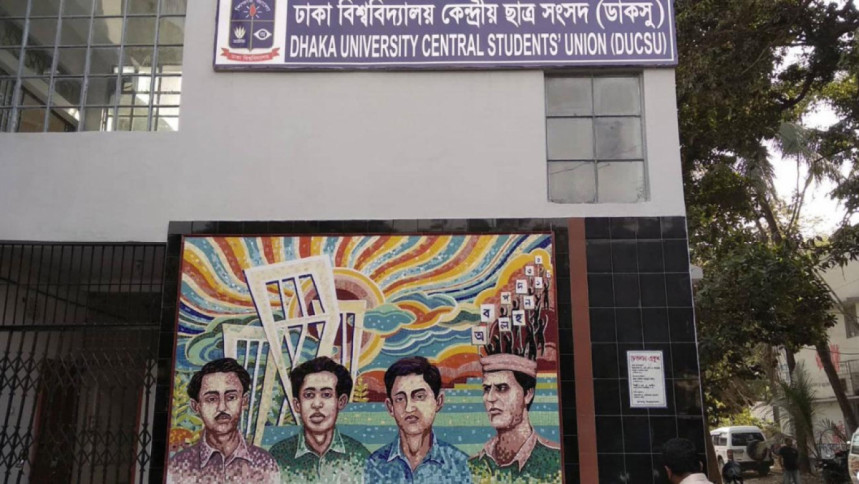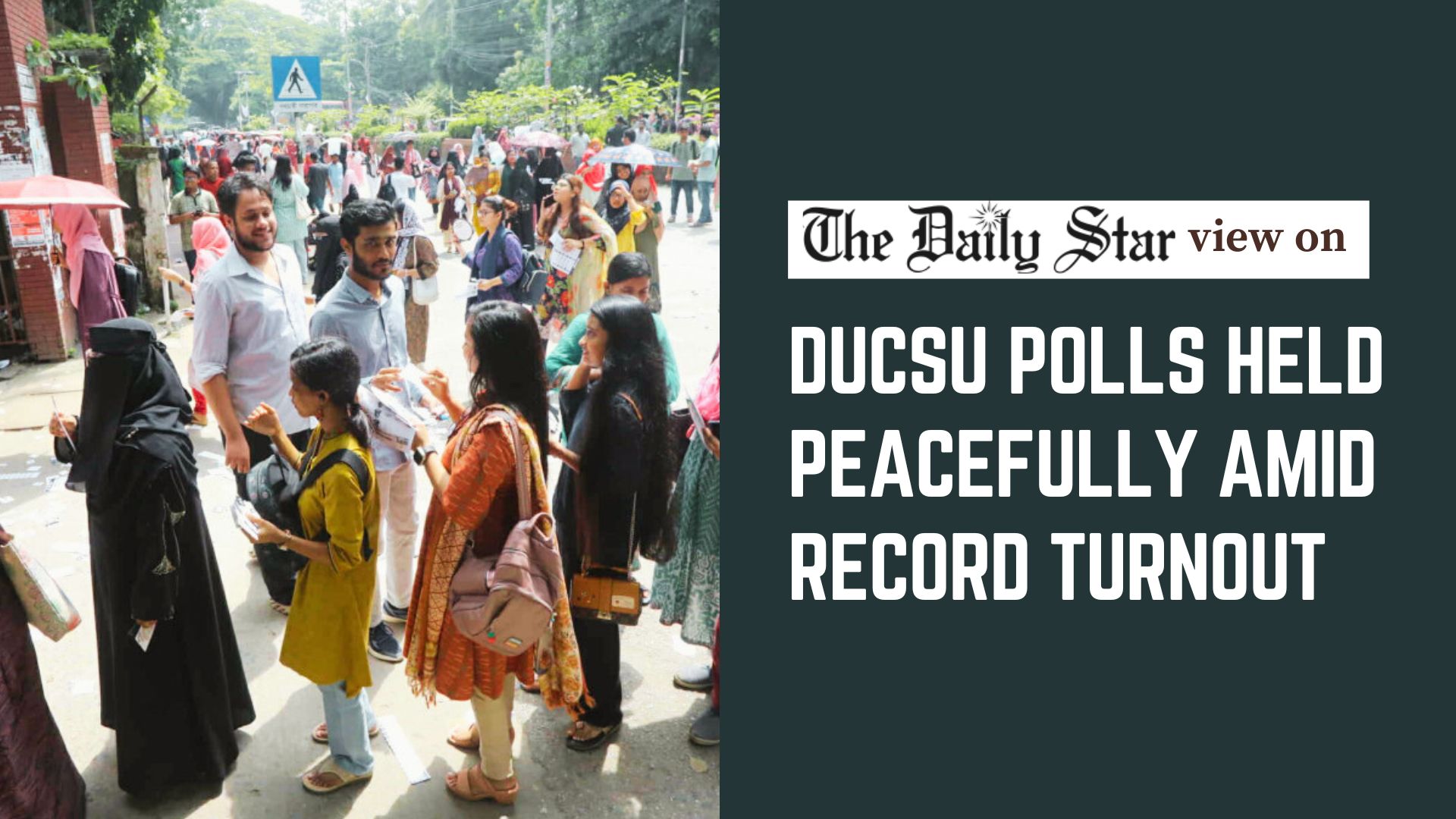‘Those who didn’t want to contest student union polls under own name must have a motive’

BNP Standing Committee member Salahuddin Ahmed today congratulated the winners of Dhaka University Central Students' Union (DUCSU) elections.
Referring to media reports, Salahuddin said, "I want to tell my journalist friends that, to my knowledge, Bangladesh Islami Chhatra Shibir did not take part in this Ducsu election and no panel contested under its name or banner. Then why is it being reported this way in newspapers and other media? That is the question."
He was addressing the 47th founding anniversary of Jatiyatabadi Mohila Dal at the Institution of Diploma Engineers, Bangladesh.
"I would like to personally congratulate those who have won in the Ducsu elections, as this is the norm of democracy. Since the elections were held after many years, there were some flaws…"
The BNP leader said their student wing Jatiyatabadi Chhatra Dal contested the Ducsu election under its own name and banner.
He said other parties, including Islami Andolon Bangladesh, also took part under their names, while some groups contested as Independent Student Unity, Integrated Student Union, Students Against Discrimination Union, Unbeaten '71, and Undaunted '24.
He said those who chose not to contest under their own names must have had their own motives. "The panel that has won is 'Oikyoboddho Shikkharthi Jote'. I would once again like to personally congratulate those who were victorious under that banner."
Salahuddin said the biggest movement since the 2024 mass uprising has been the struggle to change Bangladesh's political culture in its new journey.
"Through tolerance and empathy, we will engage in political competition and practice politics," he said.
He said while there will always be competition and rivalry in politics, it must end with mutual respect.
"At the end of the day, through democratic processes, we will congratulate one another -- that should be our guiding principle."
Salahuddin also said student union elections like Ducsu and others have always influenced national politics.
Recalling his own student days in the late 1970s and 1980s, the BNP leader said he had seen many leaders rise through these platforms, some reaching parliament while others faded away.
He said Bangladesh's major political and social changes had come through student politics, and universities must remain centres of political practice as national leadership grows from there.



 For all latest news, follow The Daily Star's Google News channel.
For all latest news, follow The Daily Star's Google News channel. 

Comments